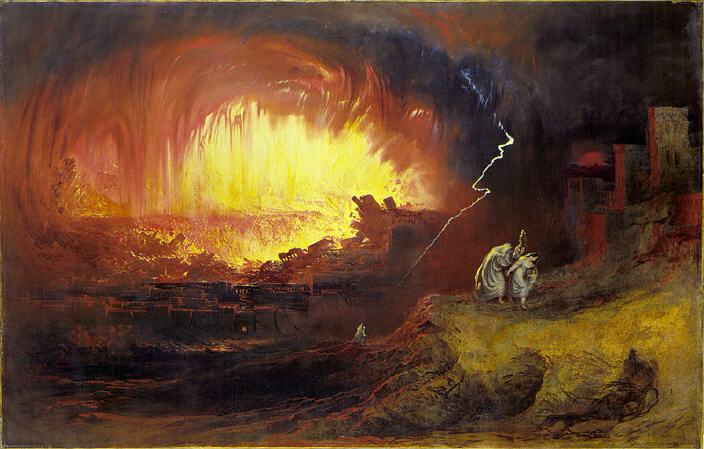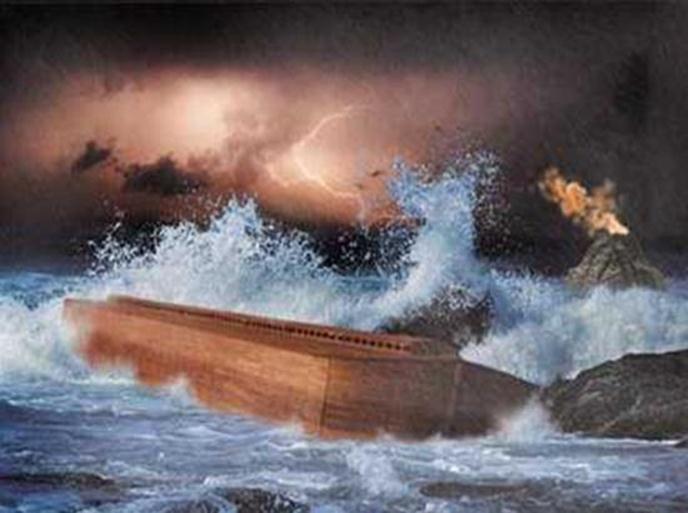Question
Gramps,
I have had a difficult time trying to reconcile the message of God’s perfect love with the accounts of wrath and brutality in the Old Testament. Why would God command that entire populations, including women and children, be destroyed? I try to understand it in the context of the laws of justice and mercy, but I still have a hard time understanding these accounts. What are your thoughts on this matter?
John
Answer
Dear John,
The accounts of slaughter in–for example–the Biblical account of the Israelite conquest of Canaan, can be very difficult to read. In one sense, they serve as a smaller example of a larger problem: We know God created this earth, that He has ultimate power over life and death, and that He is capable of intervening in miraculous ways to secure the well-being of His children. But we also know that this fallen world is full of horror and brutality; and that God Himself weeps at these terrors (Moses 7:28) even as, generally speaking, He permits their continuation.
Not only does the Lord permit such suffering to accomplish His own purposes (at least one of which apparently includes allowing mankind to exercise their agency to the fullest–see, e.g., Alma 14:11); but occasionally He even proactively causes it. It is popular, in some quarters, to contrast the vengeful “god of the Old Testament” with a New Testament Jesus who doesn’t really expect anything more than lip service from His followers and barely bothers to condemn sin, let alone punish it. But the fact is that all books in our canon of scripture warn of a God who, while loving and merciful, can be pushed to the point that He deals punishments to the wicked that cannot help but inflict collateral damage on the innocent. We see this in the Book of Mormon with the wholesale destruction of various Nephite and Lamanite cities at the time of Christ’s crucifixion (see 3 Nephi 8-9); in the New Testament with Jesus’ prophecies of the destruction of Jerusalem that would (and, as later Jewish historians tell us, ultimately did) result in the suffering even of very young children (see Matthew 24); and in the Doctrine and Covenants’ descriptions of the calamities to be poured out upon the earth in the last days (see generally D&C Sections 1 and 133).
Father Lehi taught that “men are that they might have joy” (2 Nephi 2:22). But we have to keep an eternal perspective on that. The apostle Paul wrote that “if in this life only we have hope in Christ, we are of all men most miserable” (1 Corinthians 15:19). In other words–we’re supposed to take the long view. The point of the Plan of Salvation is not to ensure that we experience happiness, or justice, or long life during our mortal probations (although it very often does). “The gospel of Jesus Christ”, teaches Elder Dallin H. Oaks, “is the plan by which we can become what children of God are supposed to become.” (The Challenge to Become, October 2000 General Conference.) The whole experience is wasted if that process of “becoming” is not allowed to unfold.
Now, we don’t know exactly what temporal factors are required to make that “becoming” process play out properly, or how it might differ from person to person. We do know that agency is a universal and crucial part of the equation. But whatever the factors may be, the scriptural record strongly suggests that societies do sometimes decay to the point where it is simply impossible for the society’s inhabitants to have a meaningful mortal probation under the conditions the Plan of Salvation requires. When that happens, God allows–or even causes–the utter destruction of that society; because what was true for fallen Adam is also true for fallen societies:
if Adam [or: a society] had put forth his hand immediately, and partaken of the tree of life, [or: been permitted to continue in wickedness indefinitely], he would have lived forever, according to the word of God, having no space for repentance; yea, and also the word of God would have been void, and the great plan of salvation would have been frustrated. Alma 42:5.
Just as Adam’s death was, counter-intuitively, an act of mercy to him; the death of an entire society can be an act of mercy to those spirits who would otherwise be born into that society and spend a lifetime without any chance of having the testing experience that eternal progression demands.
This all may sound very facile and even dismissive of human suffering; but we know that God does not take such destruction lightly. It seems that His weeping, as witnessed by Enoch, was inspired at least in part by the suffering the Lord knew would come from the Noachian flood (Moses 7:34). When God and Abraham discussed the imminent destruction of Sodom, God promised that the city would be spared if only He could find ten righteous men there–but ten such men were not to be found (Genesis 18-19). In such a state of social and moral decay, one can only imagine that the circumstances faced by the most vulnerable of that society’s members would already be dire indeed (see Ezekiel 16:49; compare to the plight of the poor among the Zoramites in Alma 31-32, the plight of the believers in Ammonihah reported in Alma 14, and the plight of the poor in apostate Israel as described by Isaiah 3:13-15).
Within these general parameters, we can do no more than speculate as to why God might consider any particular society to be ripe for destruction; or why that destruction had to be so thorough as to include even tangible property, animals, and (most disturbingly) children. Perhaps there were genetic or environmental issues that made it impossible to save the innocent without their posing a long-term epidemiological threat. Modern research tells us a child who has been a victim of truly evil behavior can be so deeply and devastatingly injured, that the child is highly unlikely to become a productive member of society without intensive therapeutic intervention of a sort that just didn’t exist four thousand, or one thousand, or even one hundred years ago. There are a number of potentially plausible explanations, but the bottom line is that we just don’t know.
What we do know is that God loves His children (1 Ne 11:17); and I strongly believe that neither He nor the righteous who are recorded in scripture as acting on His command, have ever found the destruction of entire societies to be a pleasant business. I don’t believe that these tales were written into the scriptures merely because bloodthirsty scribes from a morally unenlightened era considered them to be heroic tales of a glorious past. They are harrowing stories regardless of what time, place, or culture you live in. They are not intended to justify modern incidents of merciless butchery that are perpetrated out of hatred, greed, or blind obedience to a higher authority. With only a narrow exception for self-defense, our latter-day commission is to “renounce war and proclaim peace, and seek diligently to turn the hearts of the children to their fathers, and the hearts of the fathers to the children; [a]nd again, the hearts of the Jews unto the prophets, and the prophets unto the Jews.” (D&C 98:16-17)
So, to summarize: In my view, the sort of scriptural accounts to which you allude are supposed to be troubling. They are supposed to make us ask questions. The intent, I think, is that the process of patiently and prayerfully pondering these questions will bring us some valuable insight into the character of a God who loves us each deeply and intimately, but nevertheless acts in accordance with His eternal vision of things we cannot yet see.
Gramps







